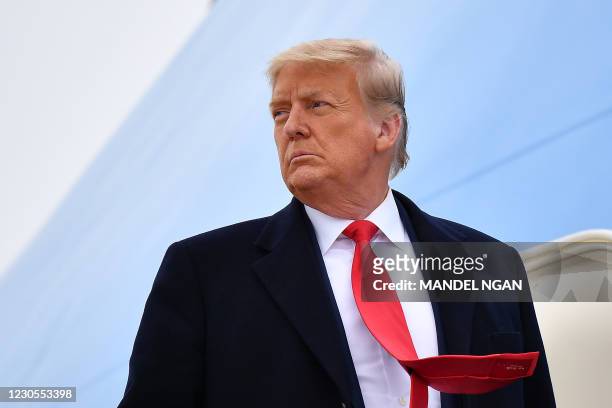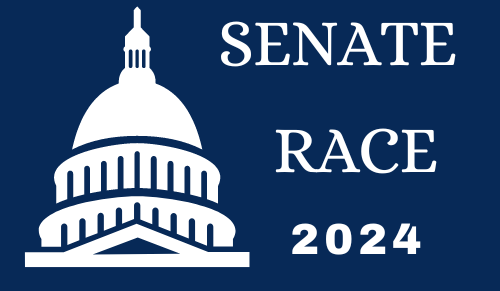
Super Tuesday: Trump's Dominance and Transformation of the GOP
With the exception of incumbents, it is clear that former President Donald Trump is in a position to possibly surpass all previous Republican presidential candidates coming into Super Tuesday. His current course demonstrates his significant influence on the Republican Party’s transformation.
Trump's Reshaping of the Republican Party
The Republican Party has undergone a dramatic change as a result of Trump’s influence. He has led the party away from the conventional Reagan-era agenda and toward a more confrontational, populist, and blue-collar posture. In contrast to the advocates of smaller government and proactive global leadership, such as former South Carolina Governor Nikki Haley, Trump has placed a volatile combination of grievances against elites and worries about racial and cultural changes at the top of his priority list.
One noteworthy feature of Trump’s influence in the GOP is the steadfast allegiance he enjoys from most members of the party coalition. Even though certain Republican lawmakers have misgivings about the way Trump is leading the party, their unwillingness to support his only opponent says volumes about Trump’s power inside the party. This acknowledgment strengthens Trump’s hold on the GOP and highlights his unmatched influence.(Super Tuesday)
Essentially, Trump’s actions in the run-up to Super Tuesday highlight his ability to successfully reshape the Republican Party to reflect his priorities and vision. His style of politics has struck a deep chord inside the party, fundamentally altering its mission and identity.
But even though the GOP primary showed off Trump’s dominance, it also revealed some areas in which he still faces difficulties, especially with suburban white voters who had previously tended to lean Republican.
Early 2024 presidential contests demonstrated that a sizable minority of Republican-leaning voters continue to oppose Trump’s agenda. Even with his resounding victories, Trump has struggled to win over moderates and voters with college degrees.
He only received roughly 40% of independent voters, according to exit or entrance polls from three contests, suggesting that some voters are still dubious about his candidacy.

Trump's Evolution and Challenges
By examining the presidential primaries, we can learn a great deal about the party’s direction, highlighting both its advantages and disadvantages. As Trump prepares for what may prove to be a momentous show on Tuesday, let’s examine some of the most important takeaways from this year’s primaries. (Super Tuesday)
The obvious conclusion is that Trump’s coalition is the dominant force in the Republican Party. Even though Trump can’t win every race because of Haley’s recent victory in the low-turnout Washington, DC, primary, he still performs better than any other non-incumbent Republican contender in history. In contrast, former Republican presidents such as Reagan (1980), Bob Dole (1996), George W. Bush (2000), and Mitt Romney (2012) each won about 45 races.
Veteran GOP pollster Whit Ayres said the primaries have shown that Republican voters are viewing Trump, in effect, as an incumbent president to a greater extent than the other candidates expected. (Super Tuesday)
Trump is trying to become the first defeated incumbent to win a rematch four years later against the man who ousted him from the White House since Democrat Grover Cleveland beat Republican Benjamin Harrison in 1892. Trump “is running as a quasi-incumbent,” Ayres said. To understand his dominance, Ayres continued, “What we need are entrance polls and exit polls from the 1892 Democratic coalition for Grover Cleveland. That’s the analogy: a former president running again to defeat the guy who beat him.”
Chris Wilson, who polled for the super PAC supporting Florida Gov. Ron DeSantis during the primary, likewise said, “Trump’s lead in the GOP race at this point” is rooted in “the perception among a large number of GOP primary voters that Trump is effectively our incumbent candidate.” None of the other candidates, he said, “found the message that makes them think they should dump their de facto incumbent.”
More than what other candidates had first predicted, veteran GOP pollster Whit Ayres claims that the primaries have shown that Republican voters view Trump as effectively the current president.(Super Tuesday)
The fact that Trump is requesting a rematch with the person who removed him from office is an unusual development that hasn’t happened since Grover Cleveland beat Benjamin Harrison in 1892. According to Ayres, Trump is running similarly to an incumbent, emphasizing the need to understand the extent of Trump’s power through historical information from the Democratic coalition of 1892.
Chris Wilson, a pollster for the super PAC that backs Florida Governor Ron DeSantis, concurs with Ayres’ assessment. Wilson contends that primary voters’ pervasive perception of Trump as the front-runner is largely responsible for his lead in the GOP contest. He points out that none of the other contenders has been able to persuade voters to change their opinion of Trump as the de facto incumbent by putting out a message that is compelling enough.
But Trump has changed significantly as a candidate since his 2016 campaign. He is now more dependent on the most conservative wing of the party and has garnered their support this time around. According to an analysis by ABC News‘s Gary Langer, during his first campaign, voters who identified as very conservative, somewhat conservative, and moderate gave Trump almost equal support.
However, Trump has seen a noticeable increase in support from voters who identify as very conservative in the current primaries, especially in Iowa, New Hampshire, and South Carolina where exit or entrance polls were conducted. Meanwhile, his appeal among moderates has waned, with him never capturing more than 28% of their vote in these states.
Furthermore, Trump is currently benefiting greatly from the support of Republican voters who identify as White evangelical Christians. But support for him is more evenly split among other party factions. Compared to 2016, the difference in his support between evangelicals and other groups is much more noticeable.(Super Tuesday)
The 2016 election was significantly influenced by voter education, with differences in voting intentions evident between educational attainment levels. Cumulative analysis shows that Trump did 12 percentage points better among voters without a college degree than among those with at least a four-year degree.
During the most recent primaries, this disparity has greatly increased. Trump received at least 25 points more support from voters without a college degree in each of the three states where polls were taken on election day. Furthermore, preliminary data indicates that a higher percentage of voters overall than in 2016 are those without a college degree.
Kyle Kondik, managing editor of Sabato’s Crystal Ball political newsletter at the University of Virginia’s Center for Politics, noted that “Trump’s influence has evolved.” It has strengthened him as a Republican candidate. However, it’s unclear what that implies for the general election.” (Super Tuesday)
Even with his overwhelming advantage, Trump has encountered strong opposition from a sizeable minority of primary voters. His percentage of the vote hasn’t increased to the heights observed by certain other primary contenders in both parties, even though he won the early nomination races. In pivotal states like Michigan, South Carolina, New Hampshire, Iowa, and New Hampshire, Trump has so far received slightly more than three-fifths of the total vote. Trump still trails the last two candidates who came close to matching his quasi-incumbent advantages, Vice President George H.W. Bush in 1988 and Democrat Al Gore in 2000, even though this is somewhat more than the share Reagan won in 1980 and equal to the percentage George W. Bush won in 2000.
After Super Tuesday, Trump’s overall vote share might rise, particularly since six of the 15 contests are in firmly conservative Southern states. Still, a lot of Republicans have been taken aback by Haley’s strong and continuous support. Trump has had trouble gaining the support of voters with college degrees, despite his advantages. Haley performed significantly better than him in South Carolina and New Hampshire among this group. On Super Tuesday, these patterns are probably going to hold.(Super Tuesday)
This trend can be partially explained by Haley’s persistent appeal to independents taking part in GOP primaries, but even a sizable portion of Republicans with college degrees have voted against Trump in states where polls were conducted on election day. Haley has also drawn a lot of support from moderates in the early contests.
The primaries did, however, make it abundantly evident that Trump’s more unstable and populist coalition now controls the party, with traditional center-right Republicans—many of whom are suburbanites—forming a minority. The party’s agenda and priorities have changed dramatically as a result of this change.
Foreign policy has undergone one notable shift. Following his election in 2016, Trump broke with the Republican establishment on internationalism, a move that is now being embraced by the party. Both the majority of Senate Republicans and the majority of House Republicans voted against giving Ukraine any more aid. This is a major shift from the foreign policy positions of previous Republican administrations.
It seems likely that Trump would encounter even less internal opposition in a second term than he did in the first given the unwillingness of other elected GOP officials to challenge him in the primaries. Once championing the Reaganite vision of America, McConnell and other GOP leaders are now caving into Trump’s power. (Super Tuesday)
What Haley and her supporters will do in November is still a crucial question as Trump gets closer to a possible victory on Tuesday. Her coalition might not be strong enough to prevent Trump from winning the nomination, but it could have a significant impact on how the general election turns out. Regardless of the result of this year’s election, Trump will likely continue to have a significant impact on the GOP infrastructure and its infrastructure for years to come.
